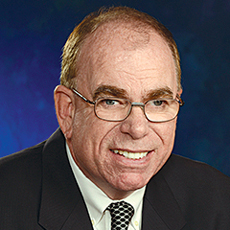
Skilled care operators now find themselves on the bad business end of many a pointed finger.
The reasons for this unfortunate situation range from convenient scapegoat for the ravages of aging to, in some cases, the well-deserved scrutiny of those who’ve strayed from the righteous path.
With the American Health Care Association’s 74th convention taking place this week in Denver, you can be sure many attendees will be commiserating about the unfavorable relationship this sector often seems to have with the outside world.
Critics on the other side of the fence aren’t just grumbling, either. They are compiling quite a list of changes they’d like to see. Items include staffing requirements, stricter oversight, higher care benchmarks and more obvious corporate structures. And those are just the greatest hits.
Look, I’m not going to deny that scoundrels running facilities exist. Frankly, they are way too common. And as far as I’m concerned, those who dance on the edge of the rulebook deserve every bit of bad trouble they get themselves into. These charlatans aren’t just tarnishing their own reputations; they are casting a long shadow over the whole field.
But here’s the kicker: Despite its challenges and rapscallions, the long-term care sector has been a godsend for those who need it.
Each and every day, operators are providing care and services to the oldest and sickest among us. If it were not for long-term care operators, how many of those in need would be left to fend for themselves? Hundreds of thousands? Maybe even millions?
Nursing facilities deliver specialized care that is tailored to the unique needs of each person served. They do it in an environment that puts a premium on safety and security. They also provide social interaction for residents. Not to mention respite for weary family caregivers.
And the notion that they are bad and not held accountable is, well, laughable. From the government’s Care Compare program to rigorous state inspections and a slew of websites dissecting every facility, customers have plenty of ways to separate the wheat from the chaff when it comes to finding quality care.
Here’s the kicker, though: Most in this sector could probably make more money elsewhere. They could certainly find positions that offer better hours and fewer headaches. My experience has been that one of the driving forces in this field is the natural instinct to make a positive difference.
But news outlets serving the general public are not going to write much about operators who simply do their jobs. Nor should they. It’s hardly news that most places are staffed with people with good intentions who want what’s best for those in their care.
So as the bad negativity keeps raining down, let’s not lose sight of the big picture here. The heart of this field beats with compassion, dedication and commitment to making lives better. That’s the story worth remembering.
John O’Connor is editorial director for McKnight’s.
Opinions expressed in McKnight’s Long-Term Care News columns are not necessarily those of McKnight’s.



